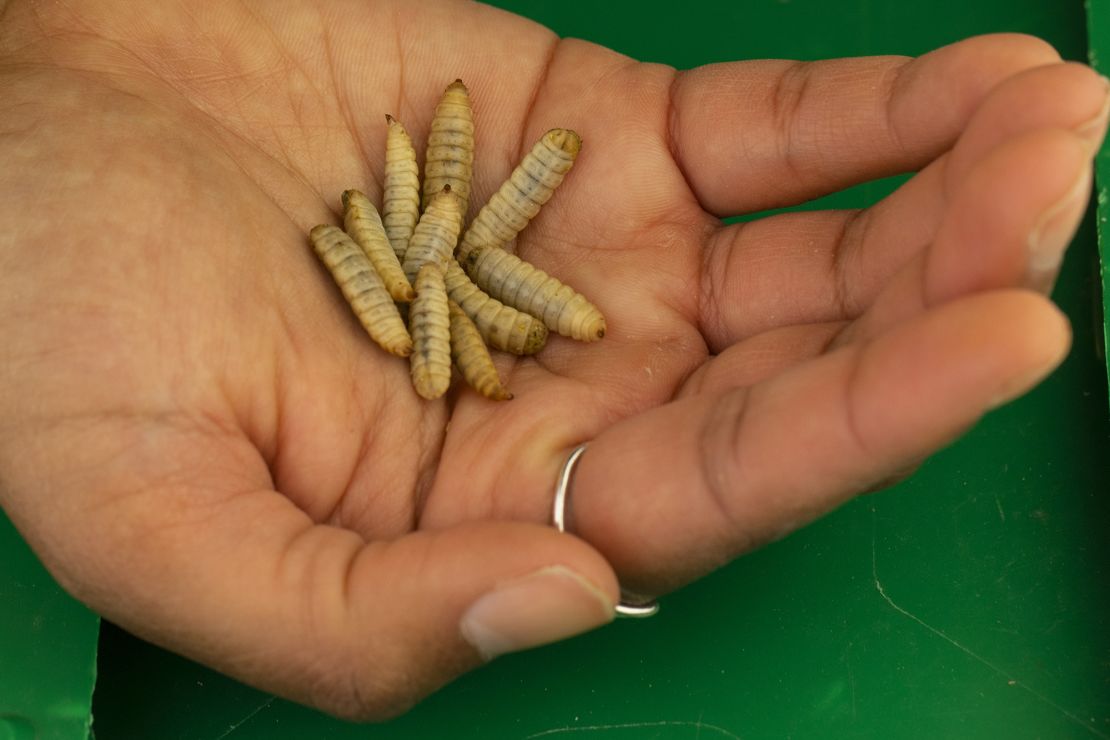New York
CNN
—
Tyson, a major US producer of beef, pork and chicken, is betting on protein that comes from insects.
The meat processor said on Tuesday that it has invested in Protix, a Netherlands-based insect ingredients maker. Tyson is not only taking a minority stake in the company, but is working alongside it to build a US factory. That facility will use animal waste to feed black soldier flies, which will then be turned into food for pets, poultry and fish. Tyson did not disclose the financial specifics of the deal.
Those flies are not going into human food, at this point. “Today, we’re focused on more of [an] ingredient application with insect protein than we are a consumer application,” said John R. Tyson, chief financial officer of Tyson Foods.
Insect protein, long hailed as a sustainable food source, hasn’t caught on in the mainstream. But in recent years, interest in insects as ingredients for animal food has been growing.
A 2021 report from Rabobank noted that “the demand for insect protein, mainly as an animal feed and pet food ingredient, could reach half a million metric tons by 2030, up from today’s market of approximately 10,000 metric tons.” That year, Mars launched a line of cat food made from insects, called LoveBug.
The Springdale, Arkansas-based Tyson doesn’t make pet food, but it does sell its animal byproducts for use in the pet food and aquaculture market, which feeds fish, the CFO said. Byproducts like animal fats, hides and inedible proteins, if not used or reduced, can end up in landfills. In this case, Tyson can send what’s in the stomach of cattle it has processed to a Protix facility, where it’s fed to insects. For the company, creating a larger market for this type of waste can not only reduce waste but offer a larger revenue stream.
“One feature of being in the animal protein business is having to figure out … how to derive value from” waste, Tyson said. “We saw this as an extension of our existing business,” he said of the collaboration with Protix, adding that the insect ingredient market has “really attractive growth characteristics that would accelerate Tyson.”
The market for insect ingredients is “definitely growing at what I would think is an exponential speed,” said Christine Johanna Picard, a professor of biology at the Indiana University–Purdue University Indianapolis School of Science. Picard helped create the Center for Environmental Sustainability through Insect Farming, a partnership between academia and industry members including Tyson and Protix.
“There are more and more startups coming into the space because there’s so much demand for insect protein,” she said.
Partnering with Tyson will help Protix scale up, noted Kees Aarts, the company’s CEO. “These partnerships are really needed to bring solutions like ours onto a global stage,” he said.
The meat industry places a large burden on the planet, in part because of the land, water and energy it takes to grow crops that feed the animals we eat. Some experts say that reducing the environmental footprint of animal feed can help make the system more sustainable.
Making food out of insects is one way to do that: Bugs take up less space and subsist on waste that would otherwise be discarded.

The black soldier fly, “can grow on almost every type of food waste and byproduct you can imagine,” Aarts said.
That waste management is a big part of why insects can help ease the burden placed by cattle and other animals on the planet, said Reza Ovissipour, an assistant professor in sustainable food systems at Texas A&M University’s department of food science and technology.
The flies eat waste from different types of animals and convert them into “a specific product, which is going to be the protein or fat from the insects,” he said. “Once you’re dealing with this specific protein and fat, then you can easily formulate your diet for animals.”
When insects eat animal waste, they are essentially serving as “mini bioreactors,” he said. “And these mini bioreactors, they are very inexpensive,” he said. “You don’t need to apply that much energy. It’s very sustainable.”